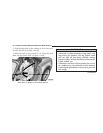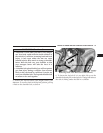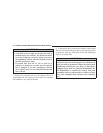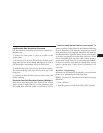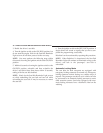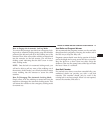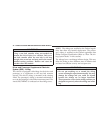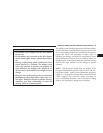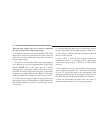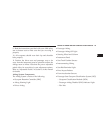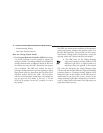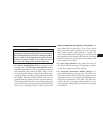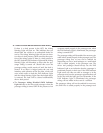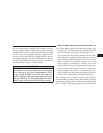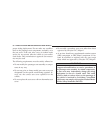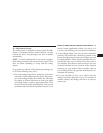
Here are some simple steps you can take to minimize
the risk of harm from a deploying airbag.
1. An infant up to one year or approximately 20 lbs (9 kg)
should never ride in the vehicle because in the event of a
crash, the rear-facing child seat places them too close to
the passenger airbag.
2. An infant in a rear-facing child safety seat, designed
for a child up to one year or approximately 20 lbs (9 kg),
should NEVER ride in the front seat of a vehicle
equipped with a passenger airbag, unless the airbag is
shut OFF. An airbag deployment can cause severe injury
or death to an infant in this position. Refer to “Passenger
Airbag Disabled (PAD) Indicator Light” in this section.
3. A child who is not big enough to wear the vehicle seat
belt properly (refer to information on Child Restraint in
this section) should be secured in a child safety seat or
booster seat.
4. An older child who does not use a child safety seat or
booster seat should ride buckled properly in their seat.
5. Never allow a child to place the shoulder belt behind
them or under the arm.
6. Never allow a child to lean forward toward the
instrument panel as a passenger airbag deployment
could cause severe injury or death to a child in this
position.
7. For a child from 1 to 12 years old: Move the passenger
seat as far back as possible. For a child from 20 to 60 lbs
(9 kg to 27 kg): Secure them in the appropriate child
safety seat or booster seat. If too large for a booster seat,
the child should wear the lap/shoulder belt properly.
8. Read the instructions provided with your child re-
straint to make sure that you are using it properly.
44 THINGS TO KNOW BEFORE STARTING YOUR VEHICLE



